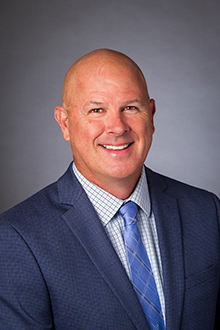During unprecedented conditions, Great American Environmental’s commitment to service remains constant

Due to the ever-changing nature of the environmental insurance market, carriers will come and go, prices will fluctuate, and new product offerings as well as enhancements will continue to emerge.
Today, the concerns evolving from the Coronavirus (COVID-19) have rippled a new wave of uncertainty within the marketplace. It is important to consider the effects the outbreak may have on the industry, and in turn your clients’ coverage.
Preparation and Awareness
The best way to prepare is to be aware of the indirect risks that may result from building vacancies and adjusting to divergent work environments. Considering escalated risk factors are important for not only your client’s safety, but also for the success of their business while reopening their facilities.
From the on-set of the pandemic, most insureds have been concerned about the immediate ramifications on business and coverage under existing policies for loss related to this communicable virus. Insureds have made claims for COVID-19 under their various insurance policies, and time will sort those out.
Looking past the virus, there are other exposures that insureds need to think about, including the potential for mold and legionella in buildings that have been shuttered or unoccupied during the shelter-in-place requirements. If buildings and tenant spaces have not been maintained, there is an increased risk for a mold outbreak due to the building vacancy. In addition, if water systems have been stagnant, the risk of legionella increases as well. Landlords and tenants should be mindful of these risks. Consider the following scenario:
_web.jpg?sfvrsn=c7b143b1_0)
A building is unoccupied and unmaintained during the shelter-in-place time period.
Unknown to the owner, a slow water leak from a cold-water supply line running behind the wall occurred for the past eight weeks.
When the building was re-opened, a mold odor was noticed, and water damage was visible in a few ceiling tiles. Upon inspection, mold was found in the insulation behind the wall.
Responsiveness is Key
Being responsive to the needs of our brokers, agents and insureds remains a top priority of ours. As a result, and recognizing the added exposures created by closed facilities, we consulted with RiskNomics at the start of the pandemic to provide proactive guidance for our clients with respect to best management practices for building or facility shutdown during the pandemic. This guidance highlighted some critical actions for real estate owners, construction companies and information related to the general maintenance of water systems.
Indeed, buildings are built to be occupied and their systems used. Regular use of water facilities and operation and maintenance of the HVAC system are critical to healthy buildings. With certain facilities and tenant spaces becoming vacant during the pandemic, it is critical for owners to be aware of various measures that can be taken proactively to minimize associated risk.
To assist our brokers and their clients, Great American recently sponsored a webinar focused on issues surrounding COVID-19 for the commercial real estate market that included information on the risk management considerations necessary to re-open a facility. This webinar included information related to the completion of a COVID-19 Pandemic Preparedness and Response Plan and the various precautions that should be taken with respect to environmental and health issues when re-opening.
We have commented in previous Environmental Insider articles and publications about the various environmental risks posed by shopping centers as a result of the “Amazon Effect”. While shopping centers and malls were once considered evidence of thriving economic and social centers, many have fallen on hard times as we continue to increase our use of online shopping. Instead of heading to a mall to purchase gifts for someone’s birthday or a holiday, many of us now shop directly from the comfort of our own homes. As a result, many shopping centers and malls have fallen on hard times with increased vacancies. We add to that with the potential fall-out from COVID-19 related to closed buildings or retail properties no longer generating income, and additional risks may result. If these sites are sold for intended future redevelopment, exposures from past operations including former gas stations, dry cleaners and other historic uses may be discovered.
Service Remains a Priority
In addition to the risk management services provided by Great American, we remain committed to serving your underwriting needs.
During the time of the pandemic, our underwriters have not missed a beat. While we continue to work remotely, our commitment and dedication to our brokers, agents, and insureds has never wavered. We have maintained our exceptional service and response, which are hallmarks of our underwriting operation.
As always, our underwriters can assist in navigating considerations for environmental insurance to help mitigate these risks. The ultimate structure of coverage depends on the technical information available for underwriting, including the findings of environmental due diligence and property condition assessment reports. However, environmental policies can be crafted and manuscript for specific exposures. Great American has extensive experience working with brokers and insureds to find environmental insurance solutions tailored to fit their needs.
You can count on Great American Environmental to remain constant in its approach to customer service. We take pride in consistently meeting the needs of your clients and providing unique coverage solutions to satisfy the complexities of each individual account.
We encourage you to reach out to any of our office locations to learn more about how we can best protect your clients!


Rick Ringenwald, Divisional Vice President
Great American Environmental Division
Rick is a Divisional Vice President with Great American’s Environmental Division. He joins Great American from his previous position as Executive Vice President and Regional Team Leader for a leading global advisory, broking and solutions company, where he directed all environmental brokerage and business development efforts in the Northeast and Atlantic regions. With 20 years of industry knowledge, Rick brings valuable underwriting skills and a unique environmental perspective to the division. He is based out of our Exton office.